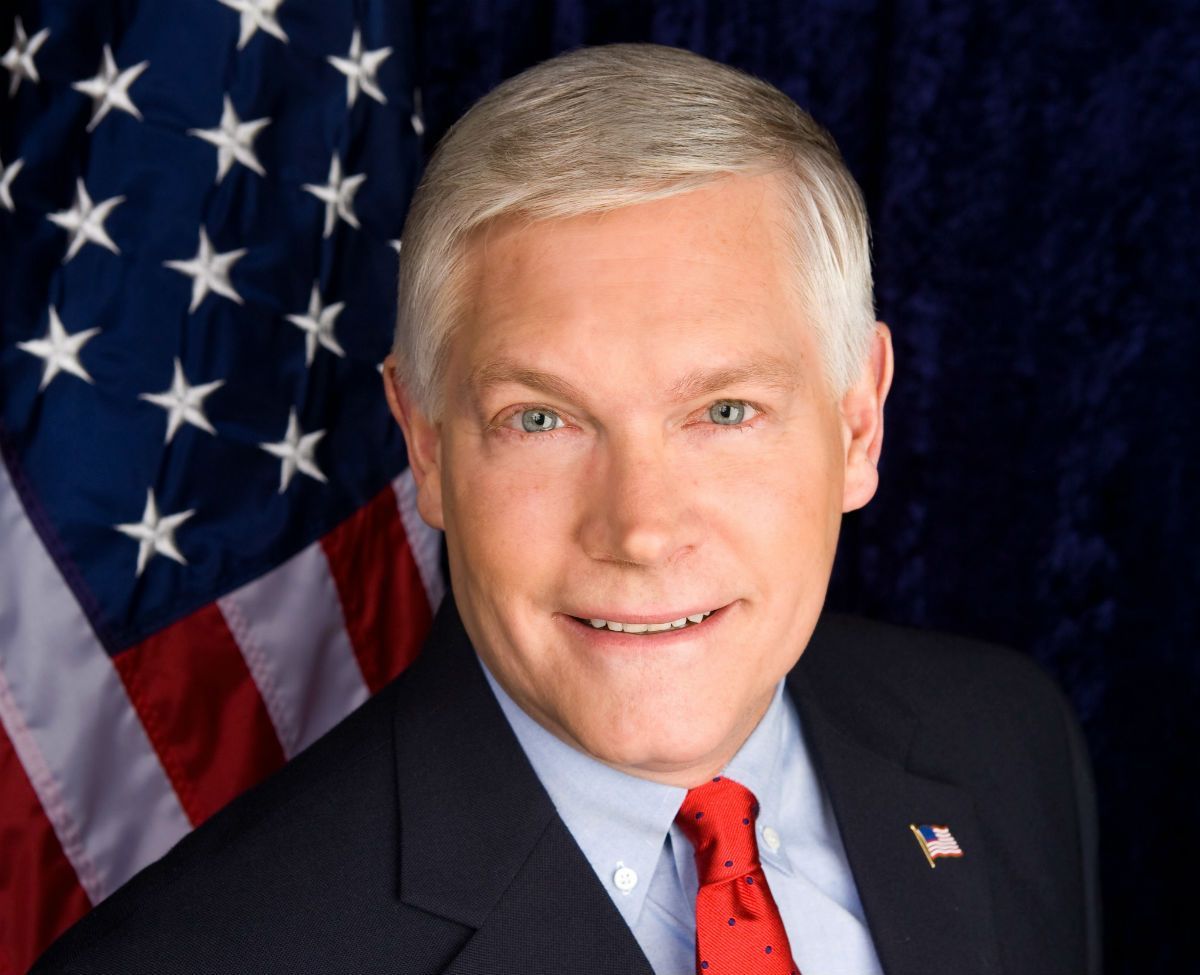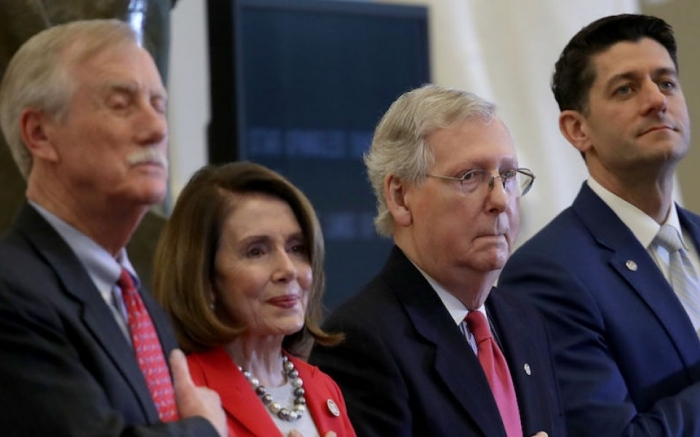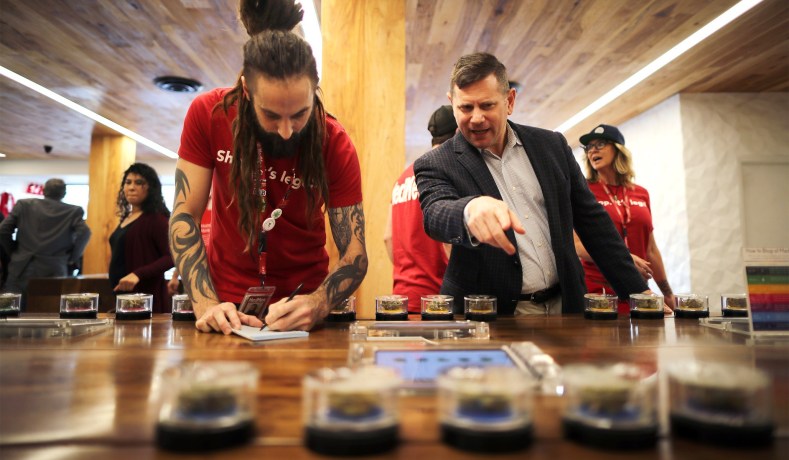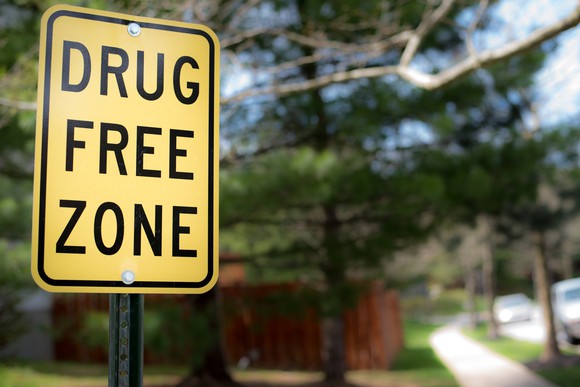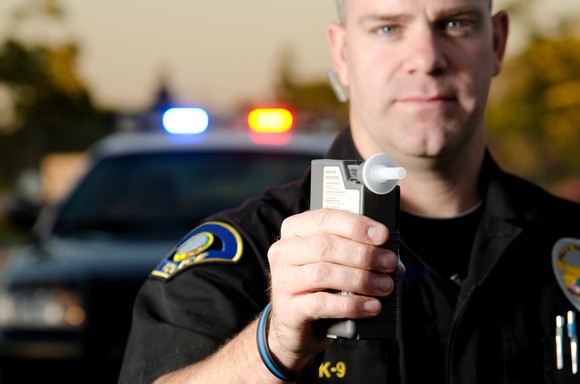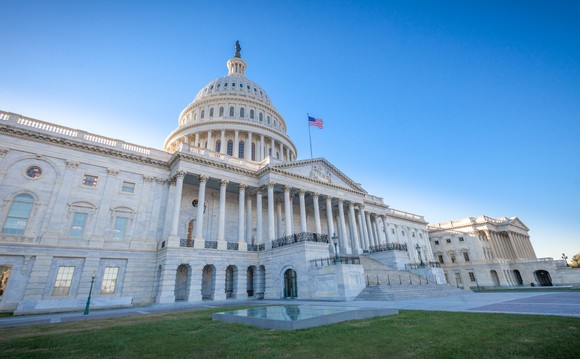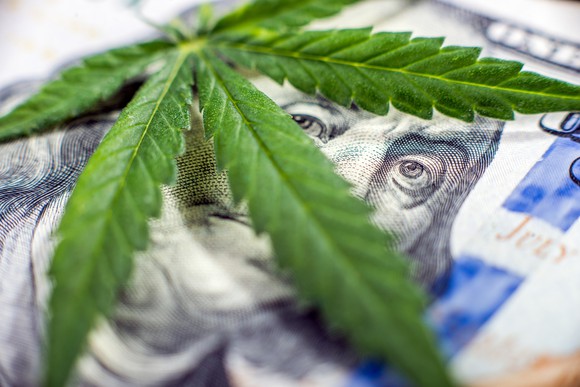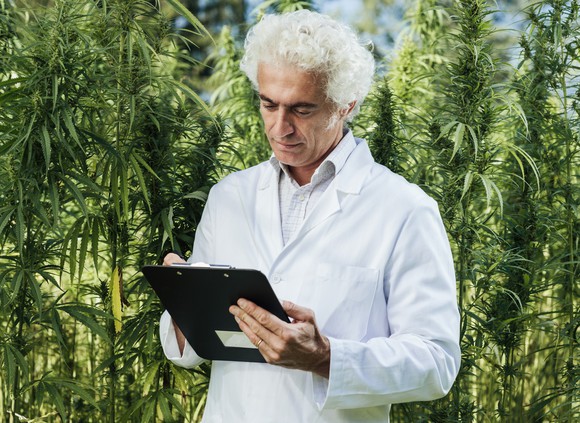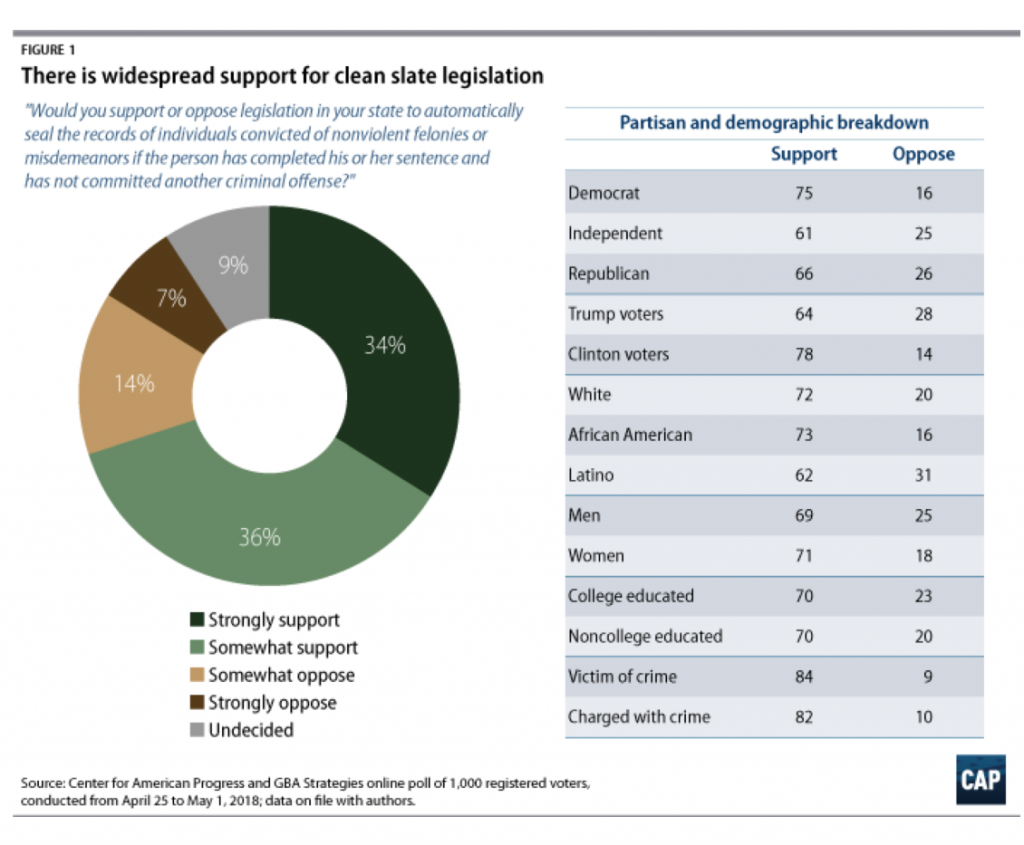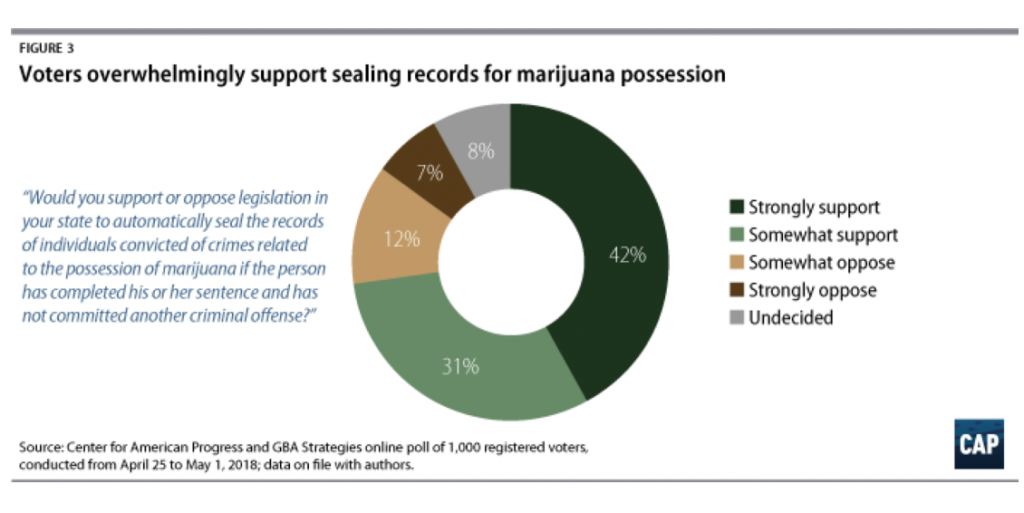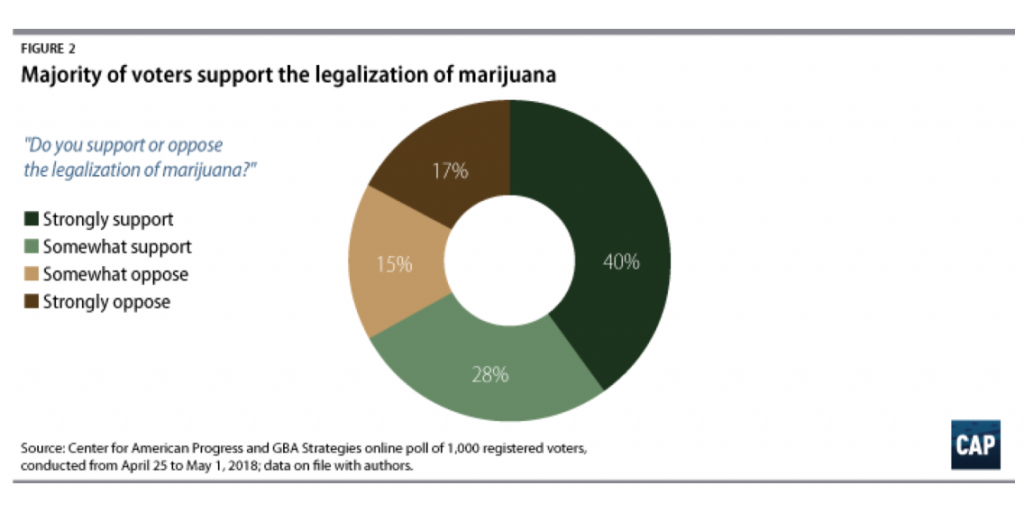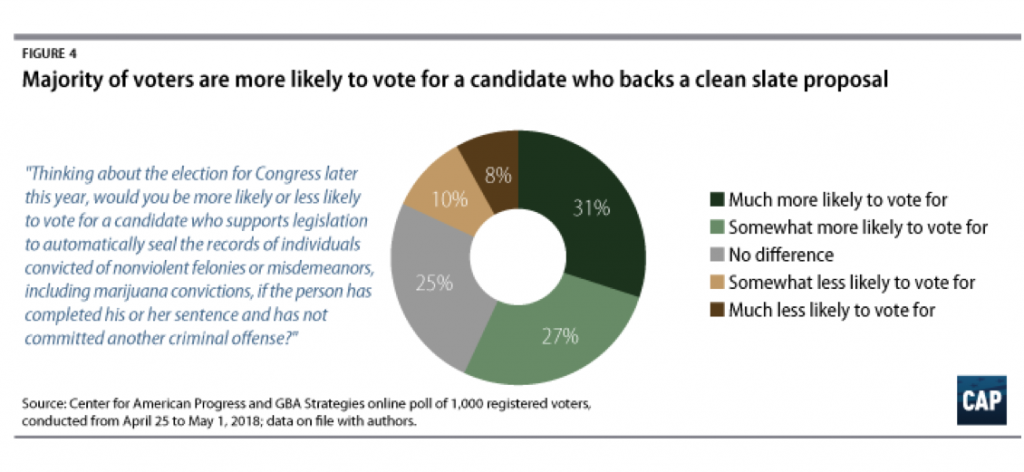To me, all BS excuses and not actual reasons for fucking putting people in jail for it. Not actual reasons at all! 



7 reasons marijuana has yet to be legalized in the U.S
Throughout much of North America, the legal cannabis movement has been unstoppable. Last year, Mexico legalized medical marijuana, while Canada is currently in the final stages of becoming the first developed country in the world to legalize adult-use weed. Even the United States has witnessed steady progression, with 29 states (and Washington, D.C.) passing broad-sweeping medical cannabis laws since 1996.
According to cannabis research firm ArcView, the North American legal pot market generated $9.7 billion in sales last year, which was up 33% from the previous year. Of course, a vast majority of aggregate marijuana sales are still conducted on the black market, giving the industry and investors hope that there's still many years of huge growth that lie ahead.
Cannabis isn't legal in the U.S., and it may not be anytime soon
Of course, that growth could be severely hampered in the United States, where marijuana remains a Schedule I drug. As a Schedule I substance, it's entirely illegal and par for the course with LSD and heroin, considered to be highly prone to abuse, and has no recognized medical benefits.
The interesting thing is that the American public appears to strongly disagree with the federal government's continued stance that cannabis remain a Schedule I drug. Gallup's national survey in October 2017 showed that
64% of its respondents favored the idea of legalizing marijuana, representing an all-time high. Meanwhile, a poll from the independent Quinnipiac University in April 2018 found that an overwhelming 93% of respondents favor the idea of physicians being able to write prescriptions for medical marijuana.
So, why hasn't marijuana been legalized in the United States? Keeping in mind that I'm here to offer a neutral take, here are seven of the most logical reasons behind why pot will remain illegal at the federal level.
1. Lawmakers worry about adolescent access
To begin with, lawmakers are concerned that opening the door to legalizing cannabis would ease the access of adolescents to the drug. What's interesting, though, is that this worry has mostly been disproven given recent data from the National Survey on Drug Use and Health.
In Colorado, one of the first states to have legalized recreational pot, a little more than 9% of teens aged 12 to 17 admitted to using marijuana between 2015 and 2016. Comparably, between 2013 and 2014, just before and during the initial launch of adult-use cannabis in the state, use rate for teens aged 12 to 17 was a considerably higher 12%.
Additionally, adolescent cannabis use fell across the country in 2016, according to the aforementioned federal survey, and no states (legal or not) demonstrated a significant uptick in adolescent use rates. It would appear that this concern is unfounded, but it remains a front-and-center objection of some lawmakers on Capitol Hill.
2. Clinical data has been mixed
Another reason lawmakers have been leery of giving the green light to marijuana has been a history of mixed clinical data regarding the drugs' benefits and risks.
On one hand, there appears to be at least some benefits offered by cannabis and/or cannabinoids.
GW Pharmaceuticals (
NASDAQ:GWPH) has its lead cannabidiol-based drug, Epidiolex, under review by the Food and Drug Administration (FDA) right now as a treatment for two rare types of childhood-onset epilepsy. In a handful of pivotal-stage studies, GW Pharmaceuticals' Epidiolex ran circles around the placebo, significantly reducing seizure frequency from baseline, and relative to the placebo, in the process. GW Pharmaceuticals' Epidiolex also received a
unanimous vote in favor of approval from the FDA's advisory panel, putting it in good shape leading up to the FDA's decision date later this month.
On the other hand, a study released in the journal
Hippocampus back in 2015 from researchers at Northwestern University discovered a worrisome trend in the brains of folks in their early 20s who began using marijuana heavily at age 16 or 17. MRI scans of these subjects showed an oddly shaped hippocampus region of the brain, which is an area responsible for long-term memory retention. It's these mixed results that concern lawmakers.
3. Driving under the influence laws aren't concrete
Next, lawmakers
have reservations about what legalizing cannabis could do to driving under the influence laws in the United States.
The issue is that there are no firm lines in the sand when it comes to marijuana use, whereas there are pretty concrete guidelines when it comes to the use of alcohol. In essence, if you're determined to have a blood alcohol content (BAC) of 0.08% or above, it's considered driving under the influence and is an offense you'll probably be arrested for. Though a peace officer could cite a driver for being under the influence at a lower BAC, it's up to their discretion.
With marijuana, there are no guidelines in terms of what represents too much impairment behind the wheel. Marijuana breathalyzers are currently in development by a number of companies, but they're not yet ready for a real-world rollout. Further complicating matters is the fact tetrahydrocannabinol (THC), the psychoactive component of the cannabis plant that gets you "high," remains in a person's system for days or weeks, making it difficult for peace officers to determine when a person ingested cannabis, and how impaired they actually are.
4. Congress doesn't have room on its docket for reform
Congress also doesn't have much, if any, room on its docket for cannabis reform. Though we might think of politicians as professional thumb twiddlers, they have a pretty busy schedule when it comes to debating bills and introducing legislation.
With Republicans firmly in control of the legislative branch of the federal government, the docket is expected to be dominated by the 2019 fiscal budget, an infrastructure bill, and (once again) healthcare reform. This isn't to say that cannabis reform couldn't be squeezed in, but GOP lawmakers are liable to use a busy docket as an ongoing excuse to keep marijuana reform off the Senate or House floor.
5. Republicans have a mixed to negative view of marijuana
I'd be remiss if I didn't also mention that Republicans have a
generally negative view of cannabis, at least with regard to legalizing adult-use weed. The aforementioned April poll from Quinnipiac University found that despite 63% of respondents favoring the idea of legalizing pot in the U.S., just 41% of self-identified Republicans were in favor of legalizing marijuana nationally. This compares to the 55% who opposed such an idea.
However, Quinnipiac's survey did show that of the 93% of respondents who favored the idea of allowing physicians to prescribe medical cannabis, 86% of self-identified Republicans favored such a measure. In other words, if there is to be marijuana reform in the U.S., it's likely to be on the medical side of the equation.
6. Keeping the current scheduling has an economic benefit
To be clear, there are
quite a few economic benefits to legalizing cannabis, including tax revenue for states and the federal government, as well as job creation. An estimated 1.1 million jobs could be created by 2025 if marijuana were legalized, according to an analysis by New Frontier Data.
But there's actually an economic benefit to the federal government in keeping things the way they are right now. U.S. tax code 280E, a tax rule more than three decades old,
disallows businesses that sell federally illegal substances (as defined by the Controlled Substances Act) from taking normal corporate income tax deductions. Assuming marijuana-based businesses are profitable, it means these companies still have to pay federal income tax, and without deductions they could be on the line for an effective tax rate of 70% to 90%. Laying on such a huge effective tax rate is a benefit to the federal government that it may not want to give up.
7. Rescheduling could be a nightmare
Last but not least, lawmakers on Capitol Hill might be standing pat on pot because rescheduling would
create a nightmare for the industry.
As noted, going from the most stringent classification (Schedule I) to being completely removed from the controlled substances list probably isn't an option -- at least as long as the GOP is in charge. This suggests that any sort of reform would likely take the form of a modest move down in scheduling to Schedule II. Schedule II drugs do have recognized medical benefits, but they're also considered to be highly prone to abuse.
Moving to Schedule II, while good news on the surface, would also expose the cannabis industry to the strict oversight of the FDA. The drug regulatory agency would have the final say on packaging and marketing, and would likely oversee the production of cannabis with regard to THC content from one crop to the next. Most importantly, the FDA could require marijuana companies to verify the medical benefits of pot via approved clinical trials before allowing it to be used for some, or all, ailments. That's a costly venture that could limit the number of people who have access to medical pot.
Though anything is possible, the chances of marijuana being legalized in the U.S. appear slim.
